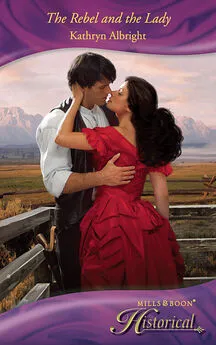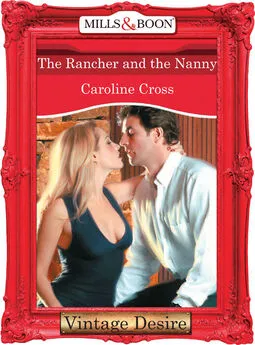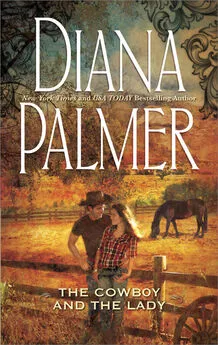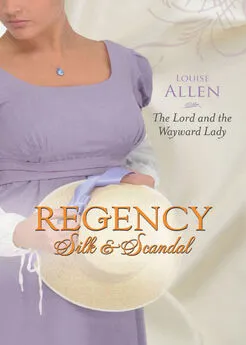John Creasey - The Toff and The Lady
- Название:The Toff and The Lady
- Автор:
- Жанр:
- Издательство:неизвестно
- Год:неизвестен
- ISBN:нет данных
- Рейтинг:
- Избранное:Добавить в избранное
-
Отзывы:
-
Ваша оценка:
John Creasey - The Toff and The Lady краткое содержание
The Toff and The Lady - читать онлайн бесплатно полную версию (весь текст целиком)
Интервал:
Закладка:
“Yes, sir, I think that is reasonable.”
“There followed what I think was an attempt on Phyllis Armitage’s life, which I was able to stop before it got really under way. Then a series of minor incidents followed with the sudden rush of events in the last few days. Barrington-Ley’s disappearance—the attempt to murder Miss Gwendoline, die two attempts on Mrs. Barrington-Ley’s life and, let’s face it, the attempt to-day on mine. Would a man attempt to murder his own daughter—or give instructions for such an attempt to be carried out, and would he kill his own wife?”
After a pause, Jolly said:
“According to the letter which Miss Gwendoline gave you, sir, there is a motive for his wishing his wife dead.”
“Ah, yes,” said Rollison. “But why his daughter?”
“She might suspect the truth, sir. From what you have told me, it is very likely that she had kept that back. It would be natural if she held back some of her grounds for suspicion of her father’s activities, if they included the attempt to murder Mrs. Barrington-Ley.”
“Yes,” said Rollison, slowly. “Yes. But I don’t believe it! Jolly, see if Lady Lost has written the letter to Mrs. Barrington-Ley yet, and if she has, let me see it before you deliver it.”
“Very good, sir,” said Jolly.
While he was gone, Rollison took the love-letter from his wallet and, for the first time, read it through. He did not enjoy it. The letter was well-written, but the English was a little stilted. It talked of difficulties, of the fact that “you” have not your freedom of love and longing—and when he finished, Rollison closed his eyes for a few moments, and wished that the Lady of Lost Memory had never come within his ken.
Then Jolly came in, carrying a letter.
The writing of the letter which Gwendoline had found was bold and clear; at a glance, the writing on the envelope which had just been addressed looked equally bold and clear. After a close inspection, he had to acknowledge that the two letters were written by the same person.
He said: “What is Lady Lost doing, Jolly?”
“She is in her room with the maid, sir.”
“I see. Jolly—what do you make of it now? Don’t hold your fire, let me know how you see the whole thing.”
Jolly said slowly: “There are some points which still mystify me, sir, but on others I think I am fairly clear. Unlike you, sir I incline towards the theory that Mr. Barrington-Ley is a willing party to the crimes, that he wishes to be free to marry Lady Lost, that to get his way he would even murder his daughter. For the rest, sir, it appears to me that he may be in some financial difficulties, and that he is tiding over the period by using the money which Lady Lost raised in America for the Yugo-Slav Relief Fund.” Jolly paused, and then asked quietly: “Shall I go on, sir?”
“Yes,” said Rollison.
“If I am right, then most of the other things fall into perspective,” said Jolly. “The one which might appear puzzling is the attack on you, but remember, sir, that members of the staff at Barrington House have, undoubtedly, a staunch loyalty to their master. The butler or even the maid, realizing that you constituted a great danger, might have made you fall, sir.”
“And then?” asked Rollison.
“Isn’t that sufficient?” asked Jolly.
“No,” said Rollison, emphatically. “It’s nothing like enough. You put David Barrington-Ley and—we’d better use this title now—the Countess together as a brace of unscrupulous scoundrels to whom murder and fraud are as meat and drink. And you fail to explain two things—first, that there was the attempt on the Countess”
“Which you have admitted was a fake attempt, sir.”
“I admitted that it might be. All right, there’s a second thing, Jolly. If they are what you think they are, if they have conspired to do these things, why did the Countess arrive, uninvited and unexpected, at that party? And was she at Malloy’s?”
Jolly murmured: “That first is mystifying, sir, but it may have been a way in which the Countess was to be introduced to the family and invited to stay for a while at Barrington House. We know that such an invitation was almost a foregone conclusion. If Mr. Barrington-Ley worked on his knowledge of his wife’s likely reaction, there is nothing surprising in that. And she might have been deliberately hiding at Malloy’s.”
“All right—what about the murder of the matron?”
“If you are right and Mr. Barrington-Ley has been in hiding there, the matron, who is a friend of the family, might have threatened to tell the police. That would provide motive enough, sir.”
“Yes,” said Rollison, after a pause. “I suppose it would.” He looked at Jolly with his head on one side. “In fact you’re right, you have a plausible case, you have worked this up as brilliantly as if you were a policeman! Do you know what I think about it?”
“No, sir,” said Jolly.
“I think it’s poppycock!”
“ I beg your pardon, sir?”
“Poppycock! Balderdash! Our friend the farrago of nonsense—oh, reasonable, logical, carefully prepared nonsense, but nonsense none the less. And what is more,” said Rollison, leaning forward and pointing a finger at his man, “I know what you are thinking and I know what Grice will say—I am influenced first by my liking for David Barrington-Ley and secondly by my quite incomprehensible confidence in Lady Lost. All right, Jolly! A lovely face and a lady in distress have blinded me to the facts—all right! I’m blind. But before you take me for treatment, find out what you can about Renfrew. Bring me the information as quickly as you can. Then find out what you can about Janice Armitage—not her sister, but Janice, the young one. The police will be watching her and probably making inquiries, but you might make a lucky strike.”
“I am ready to go at once, sir.”
When Jolly had gone out of the room, less disapproving than dismayed, Rollison scowled at the ceiling. He heard Jolly walk across the hall, and then the “maid” spoke. Almost at the same moment the front door bell rang. There was murmur of voices, and Rollison recognized Grice’s. Jolly opened the door again, and Grice came in, smiling as if all was right with the world. Yet beneath that smile there was a hint of uneasiness, as if he knew that he had come on an unpleasant errand.
“I told you so,” moaned Rollison. “He has it all sewn up, cadavers and all. All right, Jolly, you get busy. Remember that our reputation depends on this.” He waited until the door was closed, and then stared into Grice’s smiling face. Deliberately, he said, “Whatever you think, it’s wrong.”
“Well.” said Grice, “I’ve got Barrington-Ley under arrest. He was at the nursing home, masquerading as a patient.”
CHAPTER NINETEEN
RENFREW
“MY dear chap,” said Rollison, “I told Jolly an hour ago that you’d find him there, and I told Gwendoline three hours before where you’d find him if you thought of looking. Now supposing you stop grinning like a sleek and over-fed Cheshire cat and examine your case for its flaws.”
Grice laughed. “You must have had a nasty bump!”
“I even had a fall,” said Rollison. “Let me remind you that no fall is so long or heavy as that which comes after pride, and never was pride so arrogant as yours just now. You think you’ve got it all solved, don’t you?”
“Yes,” said Grice, and he was no longer smiling. “Rolly, what do you really think of the Countess?”
“I thought you knew,” said Rollison.
Grice said: “I’ve been thinking that it would be like you to pretend to have fallen for her, simply to pull the wool over my eyes.”
“Not at all true,” said Rollison. “Any wool blinding you was pulled by your own fair hand.” He was trying not to let himself feel so acutely depressed, trying to appear lightly sarcastic and so prepare himself for what Grice had to say. “Has Barrington-Ley talked?”
“No, except to say that he was drugged and woke up to find himself at the nursing home.”
“And you don’t believe him?”
“I do not,” said Grice.
“All right, let it come,” said Rollison.
Grice said, slowly: “We’ve also caught Pomeroy.”
“Remarkable! But isn’t catching crooks all part of police service?”
“And Shayle and Malloy,” said Grice.
“Quite a birthday for the police!” said Rollison.
“I wish you wouldn’t behave like this,” said Grice. “You can’t always be right, you know. The truth is”
“The truth is that you think you’ve come to the end,” said Rollison, “and this is how you’ve worked it out.” He did not give Grice a chance to interrupt, but talked swiftly. He put the case which Jolly had outlined, but in fewer words and with more telling effect, and he could see that Grice, if not actually astonished, grew more surprised as each item in the indictment against Barrington-Ley and the Countess unfolded.
Rollison spared himself nothing, and even mentioned the love-letter which Gwendoline had found.
When he had finished, Grice said:
“If you were advancing your own opinions and not guessing mine, I would still call it miraculous!”
“They’re Jolly’s opinions,” said Rollison. “Have you got anything to support such a case?”
“Yes,” said Grice. “Jolly was always more stable than you.”
“Never mind Jolly—let’s have your case,” said Rollison.
One half of his mind was paying close attention to what Grice said; the other was busy with thoughts of Lila, Countess Hollern. He thought she knew that he had not wanted to talk in front of her, and was therefore staying in her room. It was painful to think of her, and it grew more painful as Grice went on.
“Both firms of Pomeroy, Ward & Pomeroy are deeply involved,” said Grice. “Your Pomeroy is actually a partner of the accountants, although the others once denied any knowledge of him. The firm is handling the accounts of the Relief Fund, as I’ve said, and into the firm ’ s account all the American money was paid. ”
“Ah,” said Rollison.
“Early this year,” Grice continued, “Barrington-Ley suddenly changed his accountants. He had employed the same firm for many years, but he transferred to Pomeroy, Ward & Pomeroy. On the firm’s statement, the accounts are in very bad order. Fat Pomeroy agrees, and says that Barrington-Ley knew it. His purpose was to get Pomeroy’s to produce accounts which would appear satisfactory. The Relief Fund money was to help to stabilize the position.”
“Wholesale falsification of accounts,” murmured Rollison.
Yes. There can’t be any reasonable doubt about it.”
“Fat Pomeroy denied any share in the firm, and the firm denied him.”
“That isn’t a crime in itself,” said Grice. “He told me that until the last moment he hoped Barrington-Ley would be able to put his affairs in order. He—fat Pomeroy—became involved, and decided to try to cover up the shortages. The rest followed naturally.”
“It could be the answer,” Rollison said. “Have you seen the accounts?”
“Not yet, but we’re applying for a Court Order to see them as well as the various banking accounts.”
“So you’re relying on fat Pomeroy’s word.”
“Why on earth should he lie at this juncture?” demanded Grice. “Shayle supports him in every statement, and their statements were made independently. Malloy knows little about it, apparently he was employed to supply violence when necessary. He employed the painter at Miss Armitage’s flat— yes, you were right about that, they wanted her dead. They don’t admit intent to murder, of course, only to frighten.”
Читать дальшеИнтервал:
Закладка:










